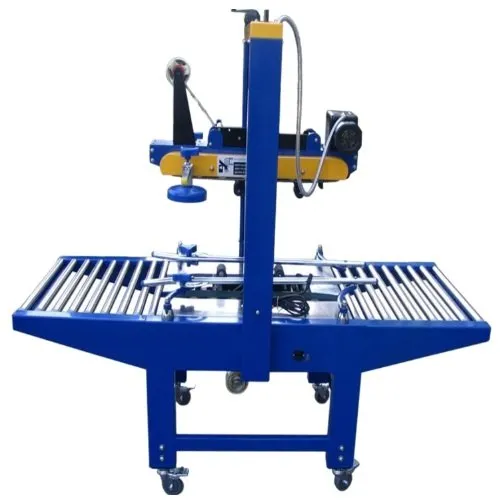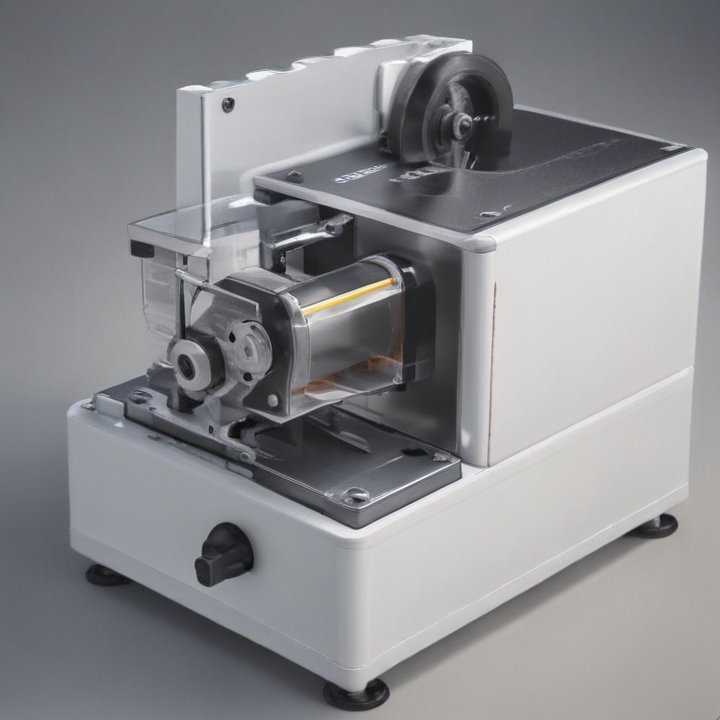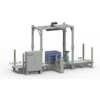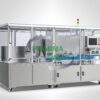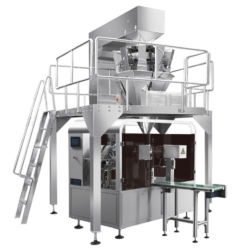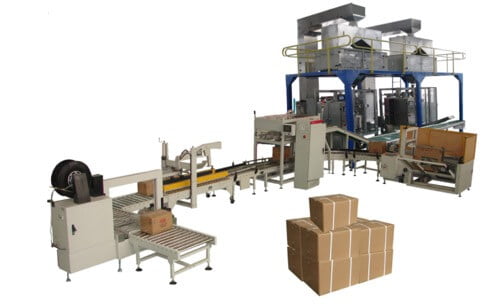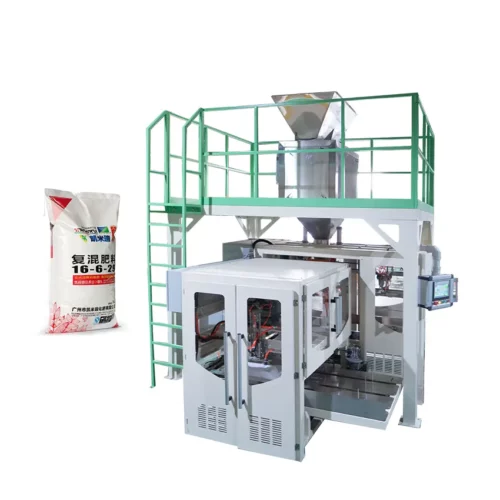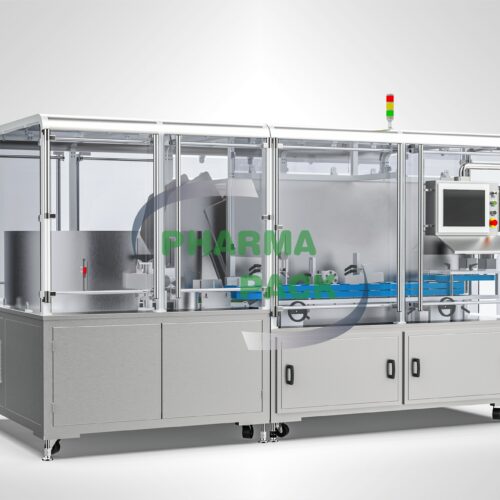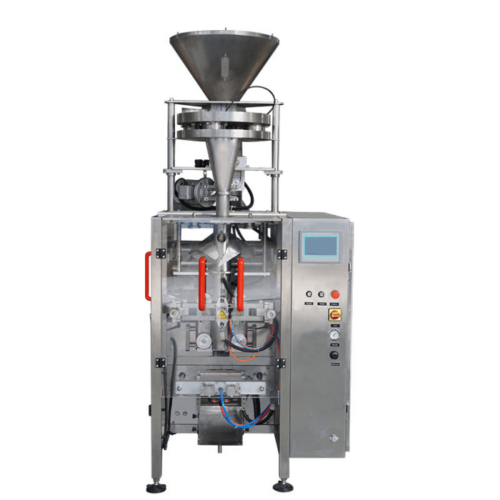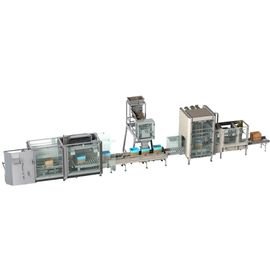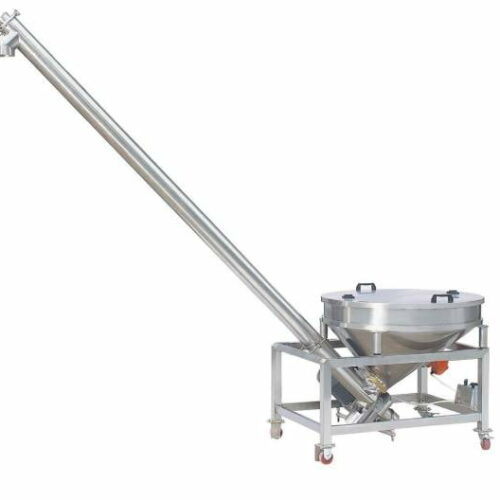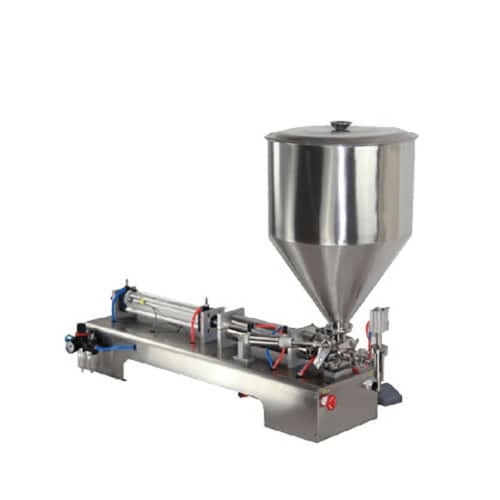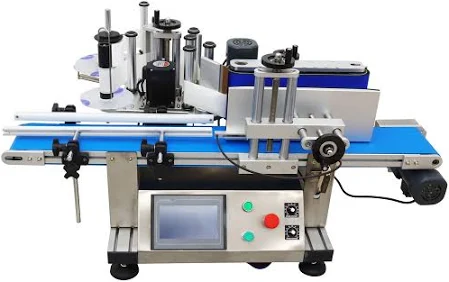List Technical Parameters of "tape sealing machine"
A tape sealing machine, commonly used in packaging and logistics operations, automates the sealing of boxes with adhesive tape, ensuring efficiency and uniformity in the sealing process. Below are the typical technical parameters of a tape sealing machine:
1. Sealing Capacity:
- Minimum Box Dimensions (L x W x H)
- Maximum Box Dimensions (L x W x H)
- Sealing Speed (boxes per minute or meters per minute)
2. Conveyor Specifications:
- Conveyor Speed
- Load Capacity
- Conveyor Type (e.g., belt, roller)
3. Tape Specifications:
- Tape Width Compatibility
- Tape Roll Diameter
- Tape Type (e.g., polypropylene, PVC)
4. Adjustment and Tensioning:
- Automatic or Manual Height and Width Adjustment
- Tape Tension Adjustment
5. Power Requirements:
- Voltage (e.g., 110V, 220V)
- Power Consumption (Watts)
6. Dimensions and Weight:
- Machine Dimensions (L x W x H)
- Machine Weight
7. Material Compatibility:
- Box Material (e.g., corrugated cardboard)
8. Operational Features:
- Side drive, top and bottom drive, or bottom drive system
- Dual or single stage sealing
- Automatic carton feeding mechanism
9. Safety Features:
- Emergency stop button
- Safety guards and covers
- Fault detection and alert system
10. Environmental Parameters:
- Operating Temperature Range
- Humidity Range
11. Additional Options:
- Integration with other packaging systems
- Print and apply labeling systems
- Custom modifications for specific applications
These technical parameters provide a comprehensive overview to evaluate and select a tape sealing machine that meets the specific requirements of different packaging operations.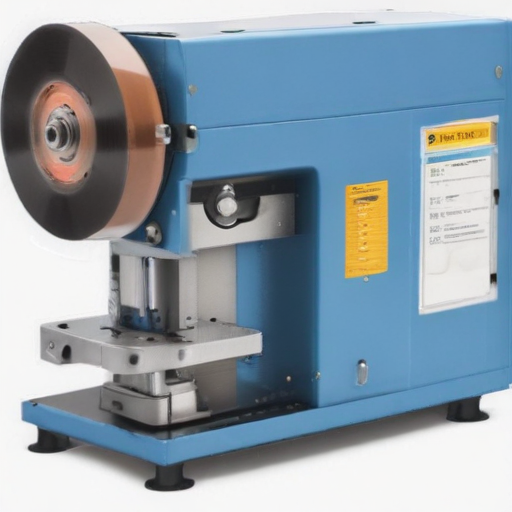
List Product features of "tape sealing machine"
A tape sealing machine, also known as a carton sealer, is an essential piece of equipment designed to efficiently seal boxes and cartons with adhesive tape. Here are some key features:
1. Automatic Operation: Automates the tape application process, saving time and reducing the need for manual labor.
2. Adjustability: Features adjustable settings to accommodate different box sizes and shapes, ensuring a versatile solution for various packaging needs.
3. Speed: High-speed sealing capabilities, accelerating the packaging process and increasing productivity.
4. Consistent Sealing: Ensures uniform application of tape across all cartons, leading to professional and secure package closure every time.
5. Durability: Constructed from robust materials like stainless steel and high-grade aluminum, ensuring longevity and durability under extensive use.
6. Ease of Use: User-friendly interface and controls allow operators to quickly learn and efficiently use the machine, reducing downtime.
7. Safety Features: Equipped with essential safety mechanisms such as emergency stop buttons and protective coverings to ensure operator safety.
8. Low Maintenance: Designed for minimal maintenance requirements, keeping operational costs low and maximizing uptime.
9. Compatibility: Compatible with various types of adhesive tapes, including pressure-sensitive tapes, providing flexibility in packaging materials.
10. Cost-Efficiency: Reduces tape waste by applying the exact amount needed for each seal, leading to cost savings in tape consumption.
11. Mobility: Often includes casters or wheels for easy relocation within a facility, facilitating flexibility in logistics and workspace organization.
12. Customization: Some models offer customizable options such as dual tape dispensers and advanced settings for specific packaging requirements.
13. Robust Motor: Equipped with powerful motors to handle high-volume sealing operations efficiently.
14. Quiet Operation: Designed for low noise levels, providing a quieter work environment.
15. Environmentally Friendly Options: Some models support eco-friendly tape and energy-efficient features, catering to sustainability initiatives.
These features make tape sealing machines indispensable in industries like shipping, warehousing, and manufacturing, optimizing the packaging process, reducing labor costs, and ensuring secure sealing of products.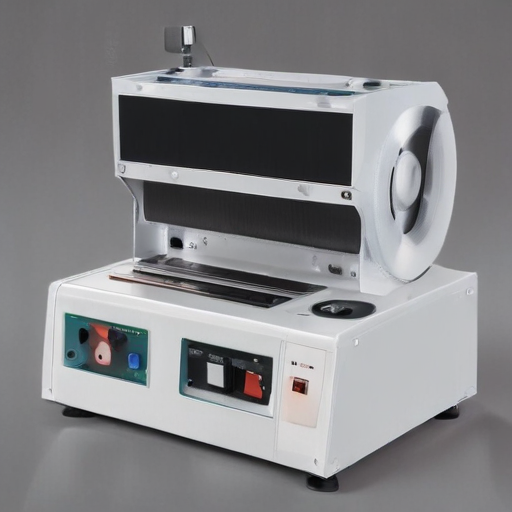
List Application of "tape sealing machine"
A tape sealing machine is a specialized piece of equipment designed to automate the process of sealing boxes, cartons, and packages with adhesive tape. Its applications span various industries, enhancing efficiency, consistency, and productivity. Here are some key applications:
1. Manufacturing and Assembly Lines:
Tape sealing machines are extensively used in manufacturing for sealing boxes and cartons that contain finished products. This ensures uniformity and secures the contents during transportation.
2. E-commerce and Fulfillment Centers:
The rise of online shopping has amplified the need for efficient packaging solutions. Tape sealing machines expedite the packing process, enabling faster order fulfillment and consistent package integrity.
3. Food and Beverage Industry:
In the food and beverage sector, tape sealers help in securely packaging products to prevent contamination and ensure freshness. They are particularly useful for sealing bulk packaging and secondary packaging.
4. Pharmaceutical Industry:
Ensuring the secure packaging of pharmaceuticals is critical. Tape sealing machines help in maintaining product integrity by providing tamper-evident seals, which are crucial for compliance with regulatory standards.
5. Electronics:
Electronics require careful handling and secure packaging to avoid damage during transit. Tape sealers offer a reliable solution for sealing boxes that contain delicate electronic items.
6. Automotive Industry:
In automotive manufacturing and parts distribution, tape sealing machines are used to seal boxes containing components, ensuring that they are securely packaged for delivery to different locations.
7. Textile and Apparel:
For the garment and textile industry, tape sealing machines help in packaging clothing and fabric materials, ensuring they are protected from dust and handling damage during transportation.
8. Retail:
In retail distribution centers, these machines facilitate the efficient packaging of products to be shipped to stores or directly to consumers, thereby streamlining the supply chain.
9. Logistics and Warehousing:
Warehouses and logistics companies use tape sealing machines to enhance the speed and reliability of packing operations, which is vital for maintaining delivery schedules and reducing damage during transit.
In summary, tape sealing machines are integral to various sectors by providing efficient, uniform, and secure packaging solutions, which is essential for protecting goods, maintaining product quality, and optimizing supply chains.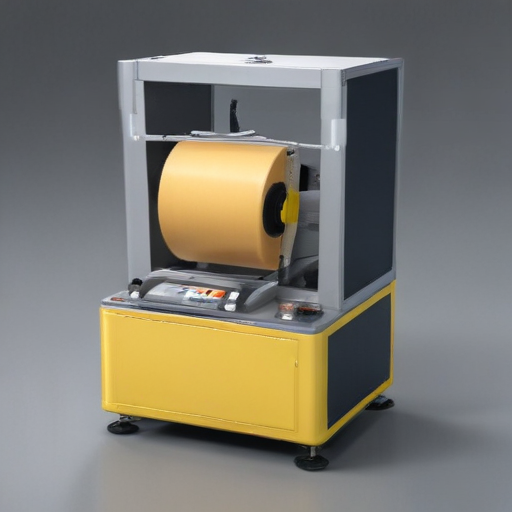
List Various Types of "tape sealing machine"
Sure! Tape sealing machines are essential tools in various industries for efficiently sealing packages and boxes. Here are some common types:
1. Manual Tape Sealing Machines
– Handheld Tape Dispensers: Portable, manual devices ideal for low-volume sealing tasks. Easy to use and commonly found in small businesses and warehouses.
2. Semi-Automatic Tape Sealing Machines
– Uniform Case Sealers: Designed for uniform-sized boxes. Operators need to manually adjust the machine or re-position the box.
– Random Case Sealers: Can handle boxes of varying sizes without manual adjustment. Operators only need to feed boxes into the machine.
3. Automatic Tape Sealing Machines
– Uniform Automatic Case Sealers: Automatically adjust to and seal uniform-sized boxes without human intervention.
– Random Automatic Case Sealers: Adapt to different box sizes instantly, optimizing productivity in high-volume operations.
4. Carton Sealing Machines
– Printed Tape Sealers: Apply custom-printed tape for branding and tamper-evident sealing.
5. Specialty Tape Sealing Machines
– Side Sealing Machines: Seal cartons from the side, suitable for narrow or low-height boxes.
– Top and Bottom Sealing Machines: Apply tape to both the top and bottom flaps of the box simultaneously, ensuring a secure seal.
– Corner and Edge Sealers: Specifically designed for sealing the corners or edges of packages, often used for specialized packaging materials.
6. Compact Tape Sealers
– Desktop Tape Dispensers: Small, often electric or manual, ideal for desk work or small-scale operations.
Selecting the right type greatly depends on the packaging volume, box size variations, and specific sealing needs of your operations.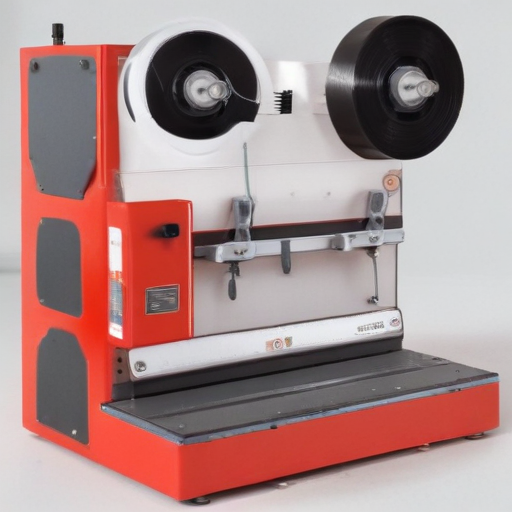
Custom Manufacturing Options for tape sealing machine
Custom manufacturing options for tape sealing machines allow businesses to enhance efficiency and improve packaging quality. These customizations can be tailored to suit specific operational needs, product types, and production environments.
1. Size and Conveyor Adjustments: Machines can be tailored to accommodate various carton sizes by adjusting conveyor widths and machine heights. This flexibility ensures that the machine can handle different packaging requirements seamlessly.
2. Speed and Throughput: Customizable speed settings enable businesses to fine-tune the machine’s operation according to production demands, ensuring optimal throughput without compromising on sealing quality.
3. Tape Type and Width: Customizing the machine to handle different tape types, such as acrylic, hot melt, or water-activated tape, and various widths ensures compatibility with the specific sealing materials used by the business.
4. Automation Features: Integration of advanced automation solutions like automatic box sizing, flap folding mechanisms, and sensor-triggered sealing can significantly reduce manual labor and increase efficiency.
5. Material Handling Systems: Enhancements such as adjustable in-feed and out-feed conveyors, accumulation tables, and ergonomic designs can streamline material handling, reducing the physical strain on operators.
6. Customization for Unique Environmental Conditions: Machines can be made to endure specific environmental conditions such as high humidity, extreme temperatures, or dust by using suitable materials and protective coatings.
7. Integration with Other Systems: Custom tape sealing machines can be designed to integrate seamlessly with existing packaging lines and ERP systems for real-time monitoring and data collection, facilitating better inventory and production control.
8. Safety Features and Compliance: Custom safety features such as protective guarding, emergency stop functions, and compliance with industry-specific safety standards ensure a secure working environment.
By leveraging these customization options, businesses can optimize their tape sealing processes, enhancing productivity, reducing waste, and ensuring consistent sealing quality tailored to their unique needs.
List Quality Control and The Manufacturing Process of "tape sealing machine"
Quality Control for Tape Sealing Machine
1. Incoming Inspection: Verify raw materials and components, including adhesives, tapes, and mechanical parts, for compliance with specifications.
2. In-Process Testing: Continuous monitoring during manufacturing to ensure components are within tolerance levels. This includes checking dimensions, mechanical strength, and electrical functionality.
3. Functional Testing: Each unit is subjected to simulated operational conditions to ensure it meets performance criteria, including tape alignment, sealing strength, and speed.
4. Environmental Testing: Assess durability under various environmental conditions, such as temperature extremes, humidity, and dust.
5. Final Inspection: Comprehensive review of finished machines, including visual inspections, operational checks, and safety compliance.
6. Documentation and Record Keeping: Maintain detailed records of inspections, test results, and corrective actions for traceability.
Manufacturing Process of Tape Sealing Machine
1. Design and Prototyping: Engineers develop detailed designs and create prototypes. These prototypes undergo rigorous testing to refine functionality and performance.
2. Component Sourcing: Procurement of high-quality materials and components, sourced according to specifications defined in the design phase.
3. Fabrication: Manufacture critical parts using techniques such as machining, welding, and molding. Precision is maintained to ensure compatibility and functionality.
4. Assembly: Skilled technicians assemble the machine, integrating electrical components, mechanical parts, and control systems. Each assembly stage is monitored to meet quality standards.
5. Integration: Incorporate control systems, sensors, and user interfaces. Ensure interoperability of all components for seamless operation.
6. Calibration and Testing: Calibrate the machine to ensure accurate tape application and sealing. Perform comprehensive testing to validate performance under different conditions.
7. Finishing: Apply protective coatings and any required labeling. Conduct final cleaning and aesthetic inspections.
8. Packaging and Shipping: Carefully package finished units to prevent damage during transportation. Coordinate shipping logistics to ensure timely delivery to customers.
By implementing stringent quality control measures and following a systematic manufacturing process, manufacturers ensure that tape sealing machines meet high standards of reliability and efficiency.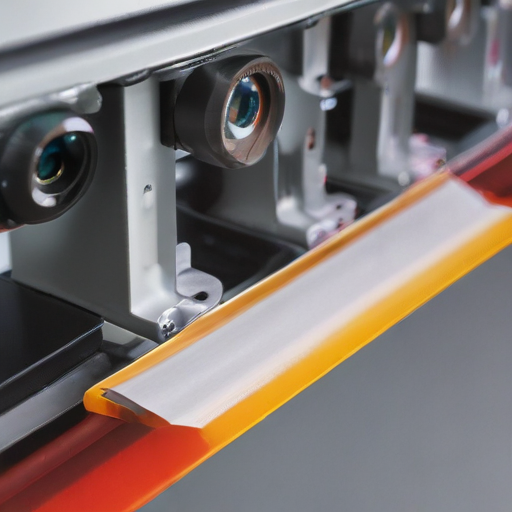
How to use "tape sealing machine"
Using a tape sealing machine is a straightforward process but requires careful attention to detail. Here are the basic steps:
1. Setup: Place the tape sealing machine on a stable, flat surface. Ensure it is properly plugged into a power source if it is an electric model.
2. Loading the Tape:
- Open the cover of the machine.
- Insert the adhesive tape roll onto the designated spindle.
- Pull the tape through the guides, ensuring the adhesive side is facing downward.
- Thread the tape through the dispensing mechanism as per the machine’s manual.
3. Adjustments:
- Adjust the tape tension if the machine allows for it. This ensures smooth dispensing.
- Set the desired length of tape to be dispensed using the machine’s settings.
4. Positioning the Box:
- Place the box or carton that needs sealing on the machine’s path.
- Ensure the box flaps are properly aligned and pressed together.
5. Sealing Process:
- If it’s a manual machine, press the handle or lever to dispense and cut the tape.
- For automatic or semi-automatic machines, push the box gently into the machine’s entry point. The machine will dispense and apply the tape to seal the box automatically.
6. Inspection: After sealing, inspect the box to ensure the tape is applied correctly and securely.
7. Maintenance:
- Clean the machine regularly to remove any adhesive residue.
- Check for any worn-out parts and replace them as necessary.
Following these steps will help you efficiently use a tape sealing machine, ensuring your packages are securely sealed and ready for shipment or storage. Always refer to the specific machine’s manual for detailed instructions and safety guidelines.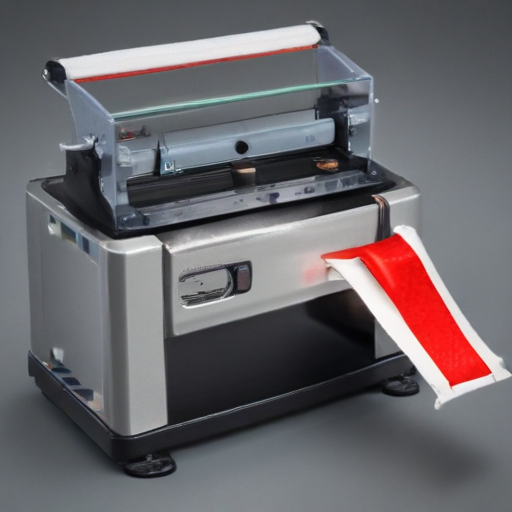
List Properties and Terms of "tape sealing machine"
A tape sealing machine, commonly referred to as a carton sealing machine or case sealer, is used primarily for sealing boxes and cartons in various industries. Below are key properties and terms associated with these machines:
Properties:
1. Automation Level:
– Manual: Requires operator assistance for positioning and sealing.
– Semi-Automatic: Some automated functions with manual positioning.
– Automatic: Fully automated with minimal operator intervention.
2. Sealing Method:
– Hot Melt: Uses heat to activate adhesive tape.
– Pressure-Sensitive: Utilizes pressure to adhere tape to the surface.
3. Construction Material:
– Steel: Robust and durable.
– Aluminum: Lightweight and resistant to corrosion.
4. Adjustability:
– Width and Height: Adjustable to fit various box sizes.
5. Speed:
- Measured in boxes per minute (BPM).
6. Tape Width:
- Capability to handle different widths of tape.
7. Box Size Range:
- Minimum and maximum box dimensions that the machine can handle.
8. Safety Features:
- Emergency stop buttons, guards, and sensors.
9. Power Requirement:
- Voltage and phase specifications for operation.
Terms:
1. Carton Flaps: The flaps of a box that are folded and sealed by the machine.
2. Dispenser: The component that holds and feeds the tape.
3. Drive Belts: Mechanisms that transport the box through the machine.
4. Side and Top Belts: Hold the box in place for precise sealing.
5. Cutting Blade: Cuts the tape after sealing.
6. Roller Rollers: Assist with even tape application.
7. Pressure Adjustment: Allows for configuring the pressure applied to the tape.
8. Infeed and Outfeed Conveyors: Transport boxes into and out of the machine.
9. Consistency: Uniform sealing performance.
10. Ergonomics: Design features that ensure operator comfort and ease of use.
Tape sealing machines are critical in ensuring efficient and reliable sealing for shipping and packaging processes across a variety of industries.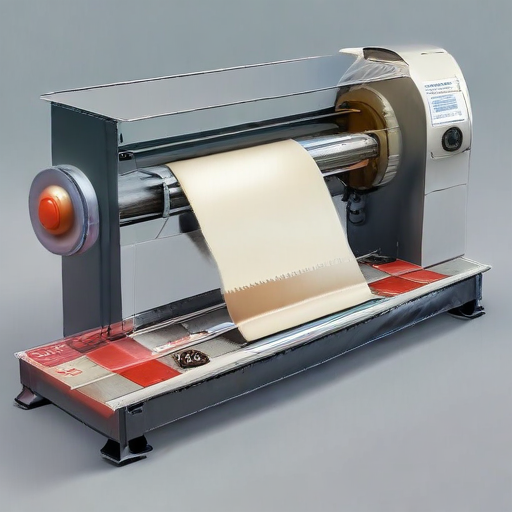
List The Evolution history of "tape sealing machine"
The evolution of the tape sealing machine is a testament to innovation driven by industrial demand for efficiency and precision in packaging.
1. Manual Tape Dispensers (Early 20th Century): The early days of tape sealing involved manual dispensers. These rudimentary tools required human effort, where tape was cut and applied manually to seal packages.
2. Gummed Tape Machines (1920s): The introduction of water-activated (or gummed) tape sealing machines marked a significant advancement. These machines wetted and cut tape efficiently, offering a stronger seal and improved tamper resistance.
3. Pressure-Sensitive Adhesive Tapes (1940s-1950s): With the development of pressure-sensitive adhesive (PSA) tapes, more versatile sealing solutions emerged. Hand-held tape dispensers adapted to these tapes, enhancing ease of use and speed.
4. Semi-Automatic Tape Sealers (1960s-1970s): Semi-automatic machines began to infiltrate industries. These machines required manual positioning of the box but automated the tape application, significantly speeding up the sealing process.
5. Fully Automatic Tape Sealers (1980s): Advancements in automation led to fully automatic tape sealing machines. These did not require human intervention for aligning boxes and could seal both the top and bottom of corrugated cartons in quick succession, drastically improving throughput.
6. Integration with Packaging Lines (1990s-2000s): Tape sealing machines became integral parts of sophisticated packaging lines. These machines were able to integrate seamlessly with other packaging equipment, such as box erectors and conveyors, for fully automated packaging processes.
7. Smart Tape Sealers (2010s-Present): The latest evolution involves smart tape sealing machines equipped with sensors, IoT capabilities, and AI. These modern machines can perform self-diagnostics, real-time monitoring, and predictive maintenance, ensuring minimal downtime and enhanced reliability.
From manual labor to smart automation, the tape sealing machine has continuously evolved to meet industrial demands for faster, more reliable, and cost-effective packaging solutions.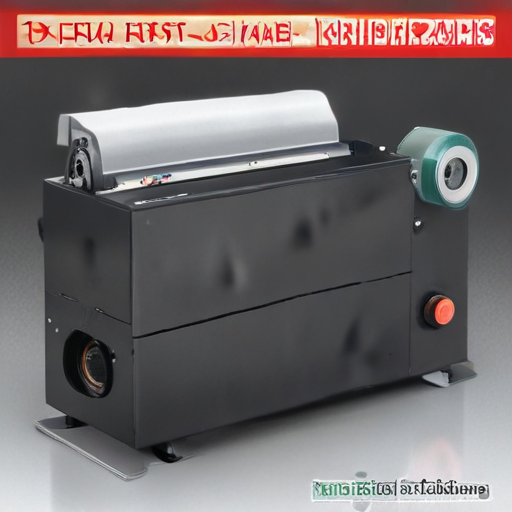
How to Select a Reliable tape sealing machine
Selecting a reliable tape sealing machine is essential for ensuring efficiency and effectiveness in packaging processes. Here are key factors to consider, keeping it concise:
1. Machine Type: Determine the type of tape sealing machine that suits your needs—manual, semi-automatic, or fully automatic. Manual machines are budget-friendly but slower, while automatic machines increase speed and efficiency.
2. Tape Compatibility: Ensure the machine is compatible with the type of tape you use, such as acrylic, hot melt, or water-activated tape. Some machines might have limitations regarding tape width and thickness.
3. Build Quality and Durability: Opt for machines built from high-quality materials such as stainless steel or heavy-duty aluminum. This ensures longevity and resistance to wear and tear.
4. Performance and Speed: Evaluate the machine’s sealing speed and efficiency. For large-scale operations, high-speed units can significantly enhance productivity.
5. Ease of Use and Maintenance: A user-friendly interface and simple maintenance procedures can reduce downtime. Check for features like easy tape roll change, adjustable settings, and straightforward cleaning processes.
6. Adjustability: Look for machines with adjustable height and width to accommodate various box sizes. This versatility is crucial for businesses packaging different products.
7. Safety Features: Ensure the machine has adequate safety features such as emergency stop buttons and guard rails to protect operators.
8. Brand Reputation and Reviews: Research brands with a solid reputation for producing reliable tape sealing machines. Customer reviews and testimonials can provide insights into the machine’s performance and reliability.
9. Service and Support: Choose a supplier that offers excellent customer service, comprehensive warranty, and availability of spare parts. Prompt technical support can be vital in case of malfunctions.
10. Cost vs. Value: Consider the overall value the machine offers, not just the initial cost. A slightly higher investment in a quality machine can result in long-term savings through increased efficiency and fewer repairs.
By carefully evaluating these factors, you can select a reliable tape sealing machine that meets your operational needs and ensures seamless packaging processes.
List "tape sealing machine" FAQ
Sure! Here are some frequently asked questions (FAQ) about tape sealing machines:
1. What is a tape sealing machine?
A tape sealing machine is a device used to seal packages, boxes, or cartons with adhesive tape, typically for packaging and shipping purposes.
2. How does a tape sealing machine work?
The machine feeds tape from a roll, applies it to the top and/or bottom of the box, and cuts the tape to complete the sealing process.
3. What types of tape sealing machines are available?
– Manual: Requires user operation to apply and cut the tape.
– Semi-Automatic: Operator initiates the process, and the machine completes it.
– Automatic: Fully automated operations with minimal human intervention.
4. What sizes of boxes can be sealed?
Most machines are adjustable and can handle a variety of box sizes, but it’s essential to check the specific model’s size range.
5. What types of tape can be used?
Commonly, pressure-sensitive adhesive tapes like BOPP (Biaxially Oriented Polypropylene) are used. Ensure compatibility with your machine.
6. What are the benefits of using a tape sealing machine?
- Speeds up the packaging process
- Consistent tape application
- Reduces labor costs
- Enhances package security
7. How do you maintain a tape sealing machine?
Regular cleaning, lubrication of moving parts, and timely replacement of worn-out components are fundamental maintenance practices.
8. Is training required to operate a tape sealing machine?
Basic training is usually sufficient, especially for semi-automatic and automatic models, to ensure proper and safe operation.
9. How much does a tape sealing machine cost?
Prices can range from a few hundred to several thousand dollars, depending on the type, brand, and features.
10. Can a tape sealing machine handle high-volume packaging?
Yes, automatic and semi-automatic machines are designed for high-volume operations, making them ideal for warehouses and large shipping departments.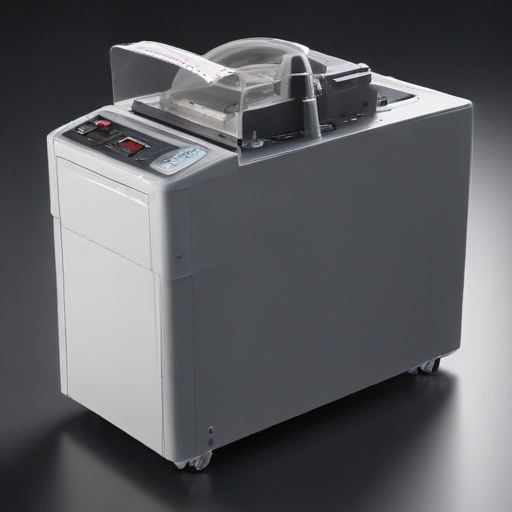
Top 10 FAQ with answer about tape sealing machine for Buyer Sourcing from China
Top 10 FAQ About Tape Sealing Machines for Buyer Sourcing from China
-
What Types of Tape Sealing Machines Are Available?
- Manual, Semi-automatic, and Fully Automatic models are available, catering to various levels of operation and budget requirements.
-
What Are the Key Features to Look For?
- Consistent sealing quality, adjustable settings, high operational speed, and compatibility with different tape sizes and types.
-
How Do They Ensure Quality?
- Look for machines with CE and ISO certifications. Request sample testing and site visits to verify machine quality and performance.
-
What Is the Price Range?
- Prices can vary from $500 for basic models to $10,000+ for high-end, fully automated machines.
-
What Are the Shipping Terms and Costs?
- Common shipping terms include FOB (Free on Board), CFR (Cost and Freight), and CIF (Cost, Insurance, and Freight). Ensure you understand the costs involved, including duties and taxes.
-
What Kind of After-Sales Support Can I Expect?
- Manufacturers typically offer warranty periods ranging from 1 to 2 years, along with technical support via email, phone, or on-site services.
-
How Easy Is It to Install and Operate?
- Most machines come with a comprehensive user manual and installation guide. Some suppliers also offer remote assistance or on-site installation for an additional fee.
-
Can They Handle Custom Orders?
- Many Chinese manufacturers offer customization options to fit specific needs, including machine size, speed, and additional settings.
-
What Is the Lead Time for Delivery?
- Lead times can range from 2 to 8 weeks, depending on the machine’s complexity and customization requirements.
-
What Payment Methods Are Accepted?
- Common payment methods include T/T (Telegraphic Transfer), L/C (Letter of Credit), and sometimes PayPal for smaller transactions.
Conclusion
By clarifying these crucial aspects, you’ll be in a better position to source a reliable tape sealing machine from China that meets your operational needs and budget.

